Albert Cohen
Bidirectional Reactive Programming for Machine Learning
Nov 28, 2023
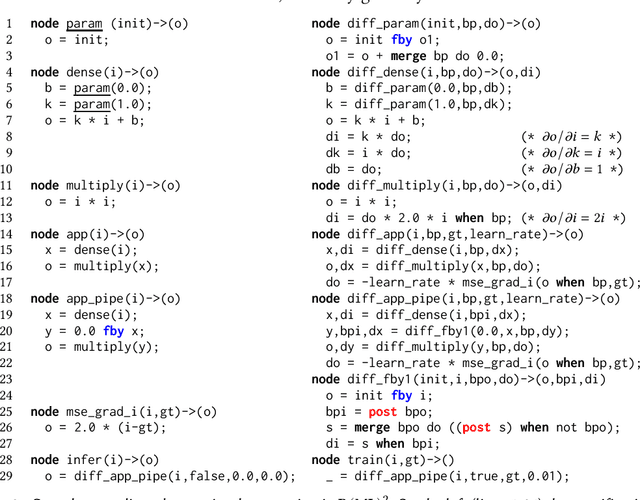
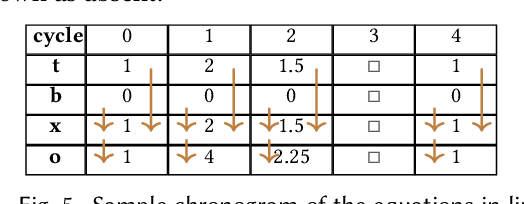

Abstract:Reactive languages are dedicated to the programming of systems which interact continuously and concurrently with their environment. Values take the form of unbounded streams modeling the (discrete) passing of time or the sequence of concurrent interactions. While conventional reactivity models recurrences forward in time, we introduce a symmetric reactive construct enabling backward recurrences. Constraints on the latter allow to make the implementation practical. Machine Learning (ML) systems provide numerous motivations for all of this: we demonstrate that reverse-mode automatic differentiation, backpropagation, batch normalization, bidirectional recurrent neural networks, training and reinforcement learning algorithms, are all naturally captured as bidirectional reactive programs.
The Next 700 ML-Enabled Compiler Optimizations
Nov 17, 2023Abstract:There is a growing interest in enhancing compiler optimizations with ML models, yet interactions between compilers and ML frameworks remain challenging. Some optimizations require tightly coupled models and compiler internals,raising issues with modularity, performance and framework independence. Practical deployment and transparency for the end-user are also important concerns. We propose ML-Compiler-Bridge to enable ML model development within a traditional Python framework while making end-to-end integration with an optimizing compiler possible and efficient. We evaluate it on both research and production use cases, for training and inference, over several optimization problems, multiple compilers and its versions, and gym infrastructures.
RL4ReAl: Reinforcement Learning for Register Allocation
Apr 05, 2022

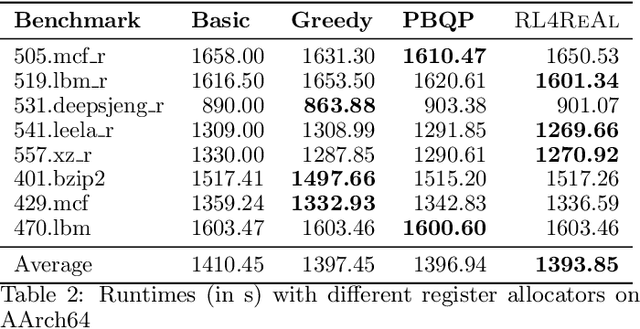
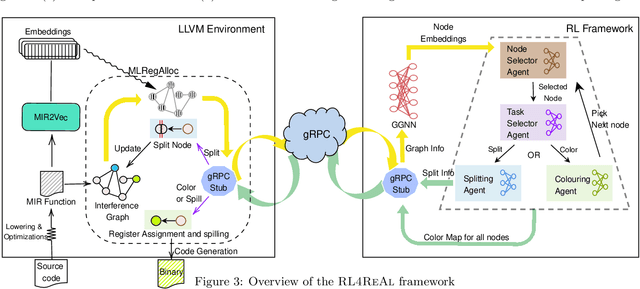
Abstract:We propose a novel solution for the Register Allocation problem, leveraging multi-agent hierarchical Reinforcement Learning. We formalize the constraints that precisely define the problem for a given instruction-set architecture, while ensuring that the generated code preserves semantic correctness. We also develop a gRPC based framework providing a modular and efficient compiler interface for training and inference. Experimental results match or outperform the LLVM register allocators, targeting Intel x86 and ARM AArch64.
MLIR: A Compiler Infrastructure for the End of Moore's Law
Mar 01, 2020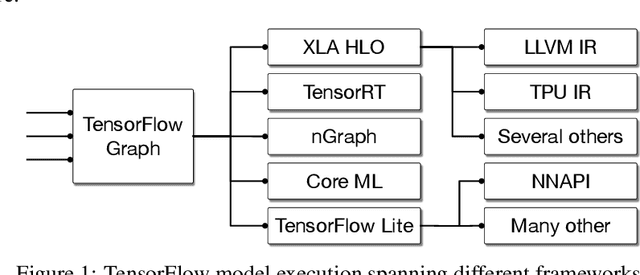
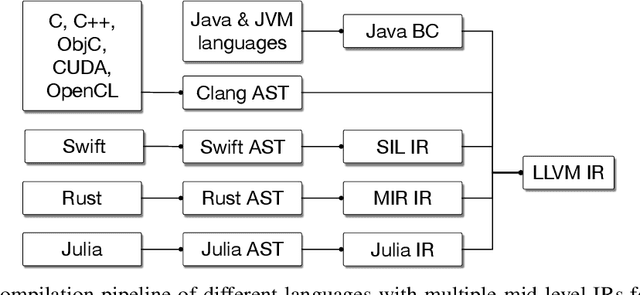
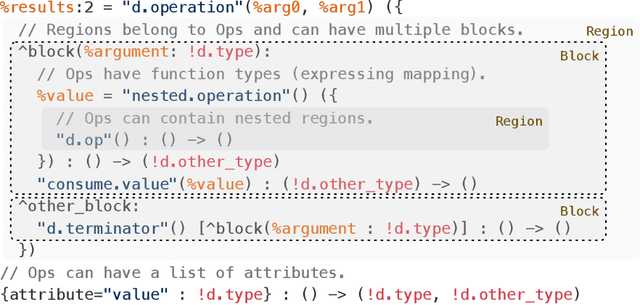
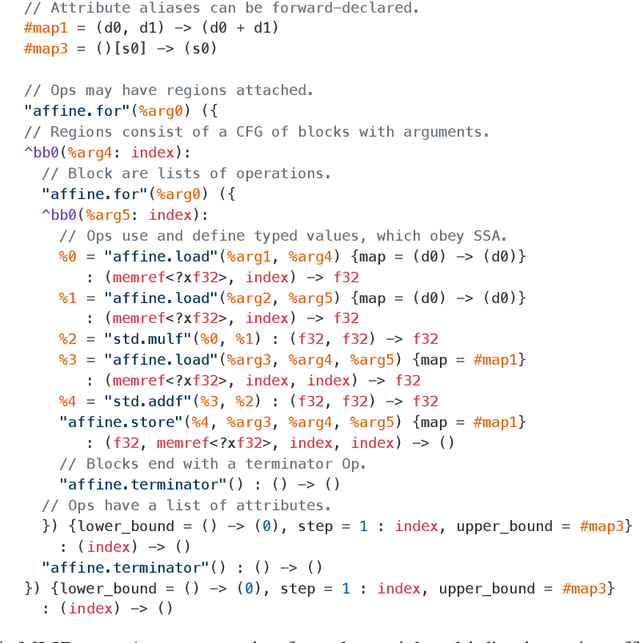
Abstract:This work presents MLIR, a novel approach to building reusable and extensible compiler infrastructure. MLIR aims to address software fragmentation, improve compilation for heterogeneous hardware, significantly reduce the cost of building domain specific compilers, and aid in connecting existing compilers together. MLIR facilitates the design and implementation of code generators, translators and optimizers at different levels of abstraction and also across application domains, hardware targets and execution environments. The contribution of this work includes (1) discussion of MLIR as a research artifact, built for extension and evolution, and identifying the challenges and opportunities posed by this novel design point in design, semantics, optimization specification, system, and engineering. (2) evaluation of MLIR as a generalized infrastructure that reduces the cost of building compilers-describing diverse use-cases to show research and educational opportunities for future programming languages, compilers, execution environments, and computer architecture. The paper also presents the rationale for MLIR, its original design principles, structures and semantics.
Tensor Comprehensions: Framework-Agnostic High-Performance Machine Learning Abstractions
Jun 29, 2018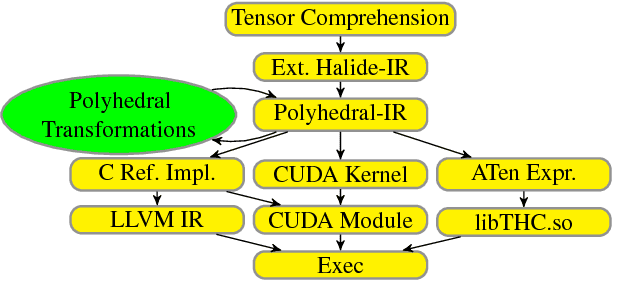
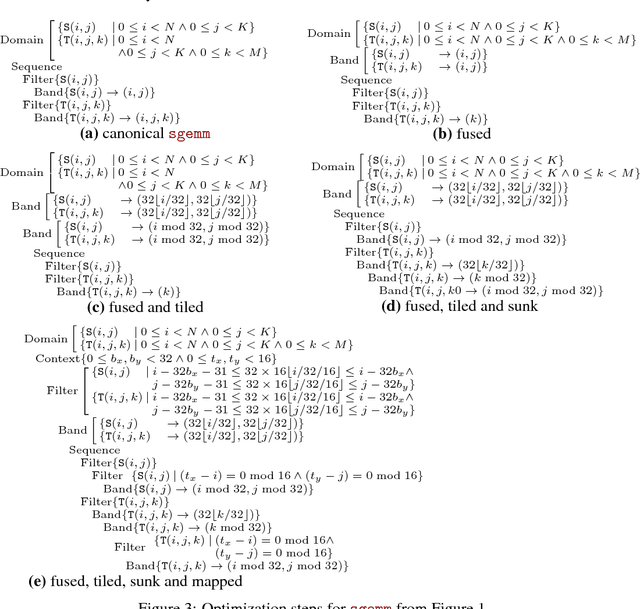
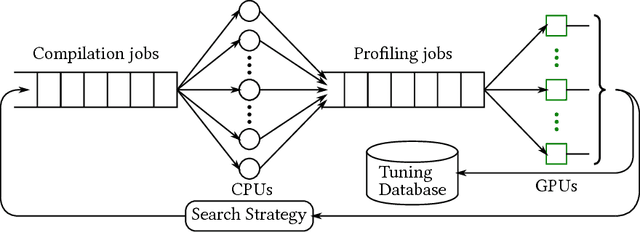
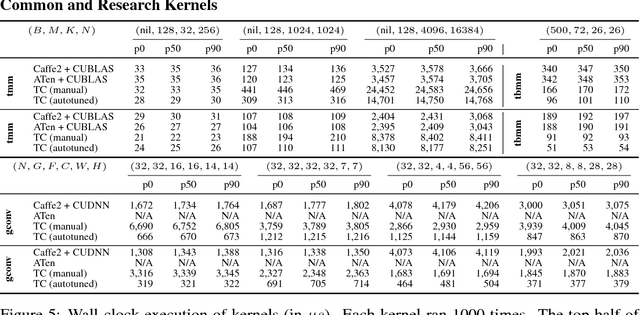
Abstract:Deep learning models with convolutional and recurrent networks are now ubiquitous and analyze massive amounts of audio, image, video, text and graph data, with applications in automatic translation, speech-to-text, scene understanding, ranking user preferences, ad placement, etc. Competing frameworks for building these networks such as TensorFlow, Chainer, CNTK, Torch/PyTorch, Caffe1/2, MXNet and Theano, explore different tradeoffs between usability and expressiveness, research or production orientation and supported hardware. They operate on a DAG of computational operators, wrapping high-performance libraries such as CUDNN (for NVIDIA GPUs) or NNPACK (for various CPUs), and automate memory allocation, synchronization, distribution. Custom operators are needed where the computation does not fit existing high-performance library calls, usually at a high engineering cost. This is frequently required when new operators are invented by researchers: such operators suffer a severe performance penalty, which limits the pace of innovation. Furthermore, even if there is an existing runtime call these frameworks can use, it often doesn't offer optimal performance for a user's particular network architecture and dataset, missing optimizations between operators as well as optimizations that can be done knowing the size and shape of data. Our contributions include (1) a language close to the mathematics of deep learning called Tensor Comprehensions, (2) a polyhedral Just-In-Time compiler to convert a mathematical description of a deep learning DAG into a CUDA kernel with delegated memory management and synchronization, also providing optimizations such as operator fusion and specialization for specific sizes, (3) a compilation cache populated by an autotuner. [Abstract cutoff]
 Add to Chrome
Add to Chrome Add to Firefox
Add to Firefox Add to Edge
Add to Edge